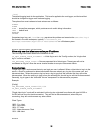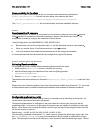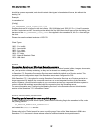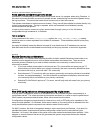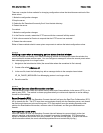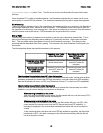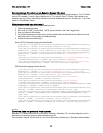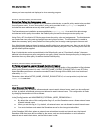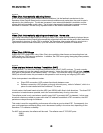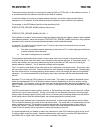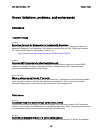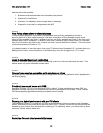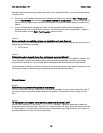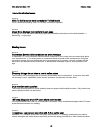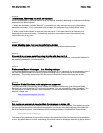IBM Lotus Sametime 7.5.1 Release Notes
Sametime
Video Chat: Automatically adjusting bit rate
RTCP is used for finding out the current network conditions; it is the feedback mechanism for the
Sametime Video Engine. Based on the current network conditions and packet loss, the send bit rate is
adjusted by the video engine. The bit-rate increases if more network bandwidth is available, and the
remote client will see better quality video. The bit rate is decreased if packet loss increases, and less
bandwidth is available. Bit rate is only adjusted based on the network bandwidth available
Sametime
Video Chat: Automatically adjusting send resolution / frame rate
If the client machine the video engine is running on has a CPU usage rate consistently displayed above
95%, the Sametime Video Engine will automatically adjust the frame rate and the send codec resolution.
The opposite is also true: if more CPU is available, the Sametime video engine will try to send out at a
higher frame-rate and better resolution, up to the maximum resolution specified in Preferences.
Sametime
Video Chat: CPU Usage
Expect high CPU usage when using Video Chat, since grabbing video frames and encoding them into
H263 format is a CPU-intensive operation. In addition, the CPU is encrypting /decrypting these packets,
and decoding the video frames.
Sametime
Voice chat and Network Address Translation (NAT)
The Sametime 7.5.x voice chat component provides Voice over IP (VoIP) services. To work correctly,
voice chat needs to have the network configured properly. Voice chat works with UDP packets; it needs
UDP ports to be opened on the firewall of every 7.5.x client. The clients are using a single port (UDP port
20830) for all audio chats; this port needs to be opened for both incoming and outgoing UDP traffic.
Voice chat operates in two different modes:
z
Direct P2P connection: UDP packets flow directly between users
z
Reflector connection: UDP packets go through an audio proxy, called a "reflector", which is a
piece of code installed with the Sametime 7.5.x server
In both modes, the firewall needs to let the UDP (port 20830) traffic flow in both directions. The direct P2P
connection is used whenever possible, and is the recommended way of using voice chat.
The reflector mode is only used when a specific type of NAT (symmetric NAT) is detected. In that case,
since both clients are unable to guess each other's IP address to establish a P2P connection, the UDP
packets are relayed through the reflector.
This mode is used for compatibility; performance will not be as good as direct P2P. Consequently, the
user could experience additional delays, and a decrease of quality in the voice chat, depending on the
Sametime 7.5.x reflector availability.
For NAT environments, the reflector will be used. The reflector uses 2 TCP/UDP ports:
- 20831
- 20832
53



